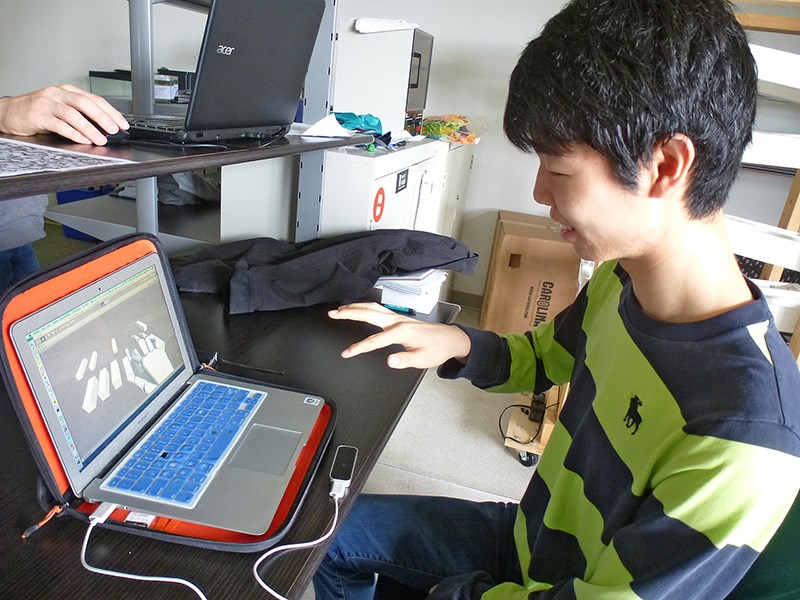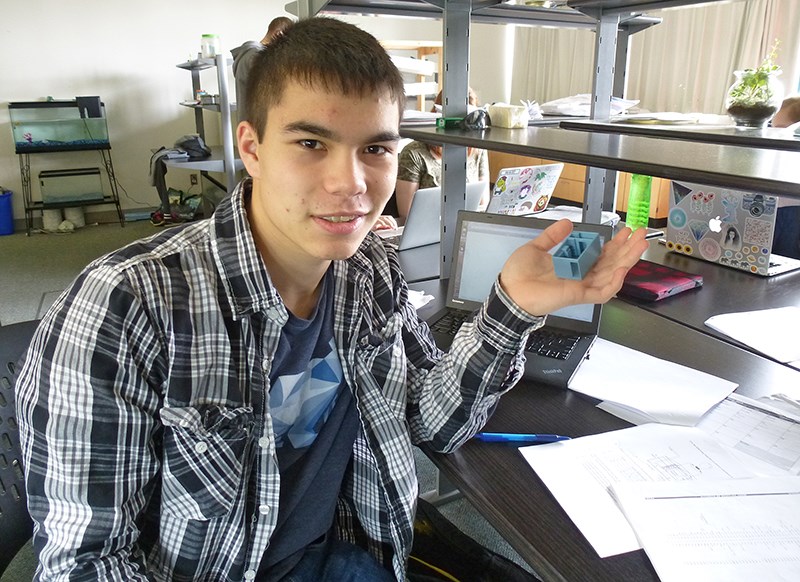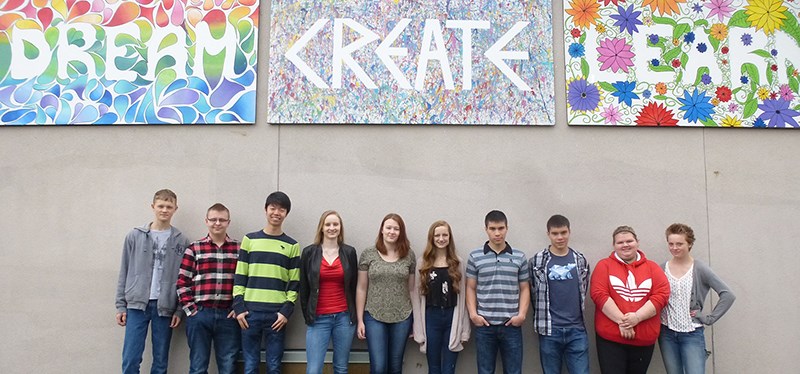Millside elementary school in Coquitlam's historic Maillardville opened as a two-room school house in 1907 to serve mill workers' children.
Today, the expanded and updated 109-year-old building is home to Inquiry Hub, an innovative School District 43 program that could be the future for B.C.'s education system.
Thursday, the school's first 12 graduates were honoured at a special ceremony at Inlet Centre in Port Moody.
These are the students who have been pioneers in a way of learning that is self-paced and mostly self-directed. They are guided by two full-time and three part-time teachers who help the teens figure out their passions and work on projects that also meet the province's academic requirements.

And while it looks more relaxing than a typical school, it is not a get-out-of-school-free card. Challenged to work on projects with real-world applications, the students learned how to to create an idea, make a plan and take action.
In one case, Hannah Brown, Sophia Draper and Shauna Turner built a community garden and now it's a legacy for the school.
"We've been teaching younger students to take care of it," said Draper.
Annica Howe developed a commercial glass recycling system for the Lower Mainland and plans to continue to work on the project after graduation.
Other students found the flexibility allowed them to pursue their interests and careers. Christopher Mereigh worked on obtaining his Red Seal as a cook at Joey's Coquitlam while Emma Gheseger researched animal chiropractic and became an award-winning dog handler.

Lead teacher Dave Truss said the program is growing from about 26 students four years ago to 60 in the fall and could be a template for the province's new curriculum for kids from kindergarten to Grade 12.
"We've created a model with a focus on what the new curriculum is trying to achieve," Truss said.
Many of the students are taking what they learned into post-secondary education: Aaron Creighton, and Liam and Owen Wou (twin brothers) plan to go into engineering and say their favourite projects involved technology, including building and maintaining a 3D printer and designing tiny houses.
Jay Jang bought a sensor with funds from the Ken Spencer Award granted to iHub for innovation in teaching and learning and built a virtual piano. He plans to go in to science or computer science.
Students said that while they enjoyed the flexibility of the program, what they most liked was to work on projects that had meaning to them.
Said Brown, one of the students who built the garden: "It was active. It was learning by doing."



